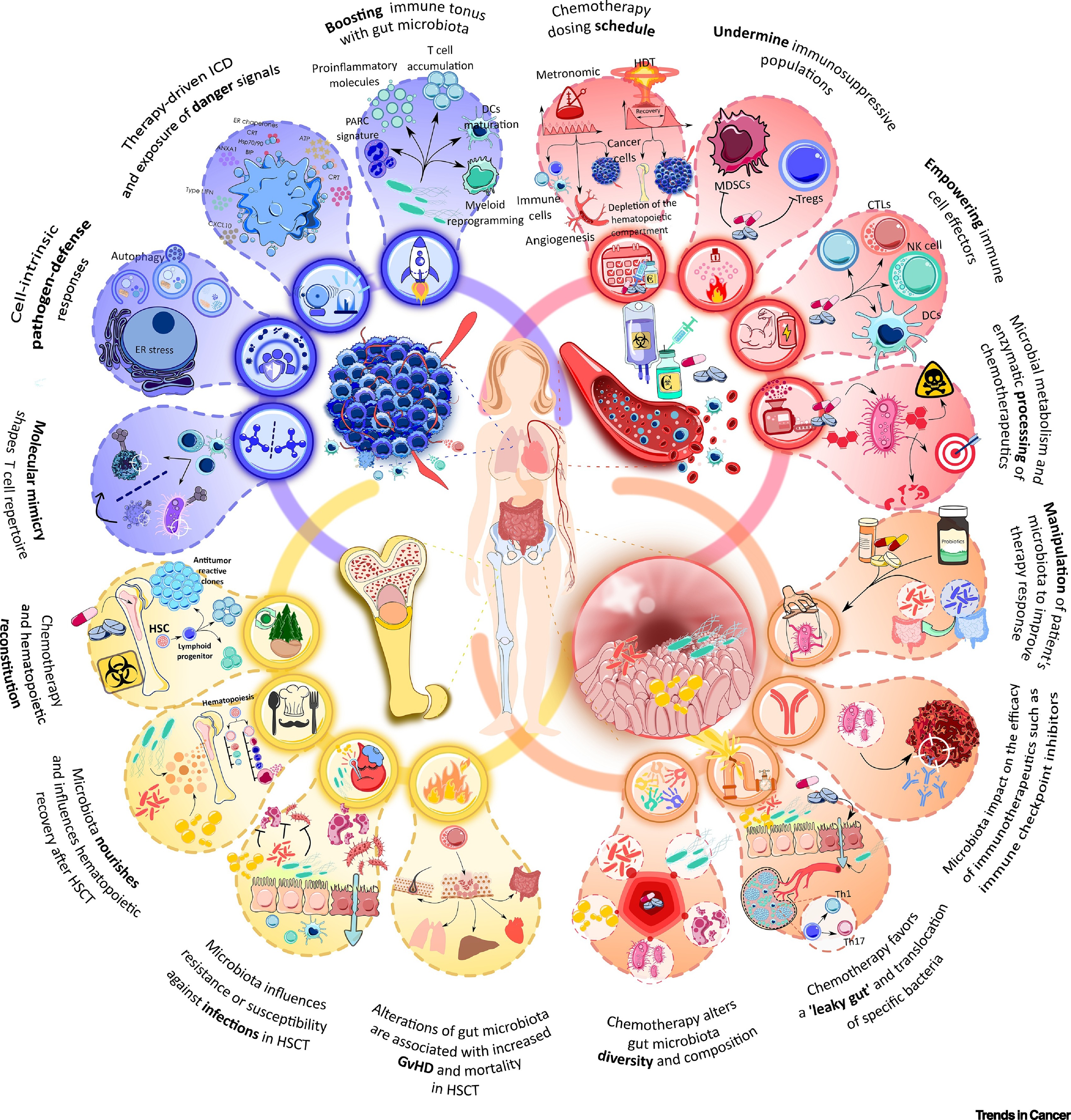
Immunomodulation, the manipulation of the immune system complex to enhance its response against cancer cells, has emerged as a promising strategy in the management of cancer.
The ability of the immune system to recognize and target cancer cells is dependent on the presence of specific molecules, called antigens, on the surface of cancer cells. Immunomodulation aims to enhance the immune response against these antigens, thereby increasing the ability of the immune system to target and destroy cancer cells.
Immunomodulation has the potential to be combined with the existing chemotherapy drugs to enhance cancer cell kill. It can also be used alone (without concomitant chemotherapy) to bring about durable cancer control of metastatic cancers. We are already seeing some of these benefits in our clinical practise today. We are delighted to see significantly increased cure rates of not only early stage but also of advanced stage 4 cancers.
There have been varied strategies that have been explored for Immunomodulation.
One of the most promising approaches to immunomodulation in cancer management is the use of special drugs (also called immune checkpoint inhibitors) which are already in widespread use for the treatment of many common cancers, including blood cancers.
These drugs target specific molecules, called “checkpoint” molecules (antigens) that act as brakes on the recognition apparatus of the immune response. By inhibiting these checkpoint molecules, immune checkpoint inhibitors release the brakes on the immune response and allow the immune system to target and destroy cancer cells. With these drugs we have not only been able to control many stage 4 cancers but also cure a few of them. There is a lot of exciting data coming up suggesting that Immune checkpoint inhibitors may be enable us to save critical organ function as was promisingly shown recently in a few patients with rectal cancer due to the use of Dostarlimab.
They are non-specific Immunomodulators which boost the existing immune response and destroy cancer cells. This is achieved through increasing the levels of Immuno-messengers called cytokines which send messages between the cells of the immune system and lead to increased tumor cell kills. This type of Immunomodulation has led to serious side effects in the past due to which increased research is underway to not only increase the effects but also reduced the side effects of this type of immunomodulation.
Oncolytic virotherapy is a specialized immunomodulation approach which uses genetically modified version of viruses to specifically target and destroy cancer cells. These viruses infect and exponentially multiply inside the cancer cells causing the tumor cells to swell and burst, thereby killing the cancer cells. When the cancer cells die, their antigenic protein contents are released that stimulate the immune response against cancer cells. The Virus typically does not enter the normal cells. Oncolytic virotherapy has been approved for the treatment of Melanoma (Skin cancer) and is being seen to be effective in the management of various types of cancer, including breast cancer and ovarian cancer.
Another promising approach is the use of cancer vaccines. There are vaccines that help to prevent cancers such as Cervical Cancer and liver cancer and there are vaccines that treat cancers. The latter types are designed to stimulate the immune system to recognize and target specific antigens on cancer cells. This can be achieved through the use of whole cancer cells, cell lysates, or specific antigens. Cancer vaccines have been approved for the treatment of advanced prostate cancers and shown to be effective in the management of various types of cancer, including melanoma and ovarian cancer.
Adoptive T-cell therapy (ACT) is another promising and highly exciting approach to immunomodulation in cancer management. T lymphocyte cells are specific immune cells that have the ability to recognize and target cancer cells. In this approach, the patient’s normal T cells are isolated and removed from the blood and are genetically altered so as to recognize cancer cells avidly. Thereafter these altered T cells are multiplied in number outside and put back into the body after which they destroy all the cancers cells in a robust fashion. This type of therapy has also been popularly named as chimeric antigen receptor T cell therapy (CAR-T therapy). ACT has been shown to be effective in the management of various types of cancer, including melanoma, leukemia, and ovarian cancer.
Side effects of immunomodulation in cancer management
While Immunomodulation in cancer management is highly specific and robust, several side effects have been encountered which are largely mild in nature. These include fatigue, rash, and diarrhoea. Flu-like symptoms are common after the initial few infusions which largely wane away with time. Sometimes, immunomodulation can lead to an overactive immune response, called as the cytokine storm, which can lead to serious side effects, such as fever, chills, and difficulty breathing which rarely may lead to organ failure or death as well. The key in utilizing Immunomodulation as the mainstay of cancer therapy would be by carefully selecting patients with adequate medical fitness to tolerate this treatment approach and making sure to monitor these patients closely during therapy.
Potential benefits and risks of immunomodulation in cancer management
In conclusion, immunomodulation has emerged as a an exciting and promising strategy in the management of various solid cancers and blood cancers with various approaches being investigated, such as immune checkpoint inhibitors, cancer vaccines, adoptive cell therapy, and oncolytic virotherapy. However, it is important to be aware of the potential side effects associated with these therapies and to closely monitor patients for any adverse reactions. Medical oncologists with experience utilizing these approaches fully understand the potential benefits and risks of these therapies. Many including yours truly believe, that immunomodulation will not only enhance the benefits but also reduce the limitation of currently existing cancer treatment options.
Dr. Mangesh P Kamath, Consultant Oncology, Fortis Hospital, Bannerghatta Road, Bengaluru